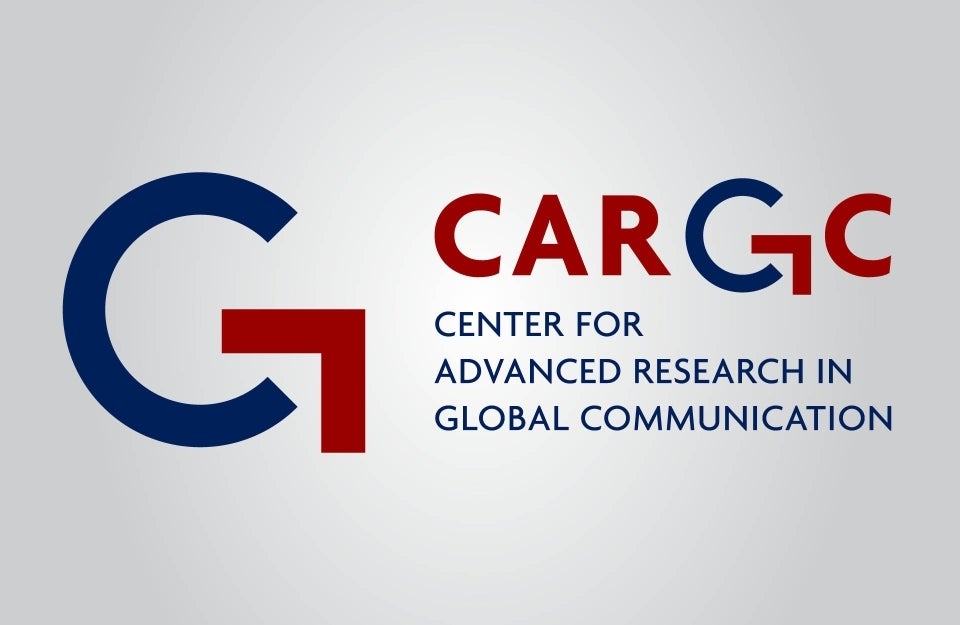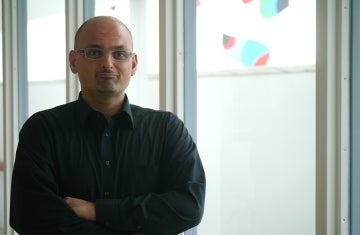Annenberg Launches Center for Advanced Research in Global Communication
Under the direction of Marwan Kraidy, the center is the first to study communication and globalization.

Strengthening its growing focus on global communication, the Annenberg School for Communication has launched the Center for Advanced Research in Global Communication (CARGC).
Under the direction of Professor Marwan M. Kraidy, the Anthony Shadid Chair in Global Media, Politics & Culture, CARGC is an institute of advanced study that aims to produce world class, field-defining research, grounded in a vision of “inclusive globalization” that embraces bottom-up actors and the stunning diversity of global media, politics and culture.
Thematic research programs focus on the transnational public sphere, the global geopolitics of communication, and global media policies and industries. The new center will also explore changing dynamics of knowledge production and dissemination, including electronic publication, digital archives, and new ways of understanding and explaining the world.
“CARGC is the first institute for advanced study that focuses on communication and globalization,” says Kraidy. “Our plan is to foster the very best scholarship in communication to bear on enduring global issues and pressing contemporary problems.”

CARGC incorporates both the Center for Global Communication Studies, directed by Monroe Price (CGCS) and the Project for Advanced Research in Global Communication (PARGC), founded by Marwan M. Kraidy.
“CARGC carries on the commitment to identifying and mentoring emerging talent worldwide that was the hallmark of both PARGC and CGCS,” says Kraidy. “It will maintain a number of their successful established programs while refocusing on the incubation, production and dissemination of scholarly research.”
As an institute for advanced study, CARGC will be a haven for scholarly development where early career scholars work closely with more experienced researchers integrated in thematic research clusters.
“CARGC aims to combine deep and sustained scholarly research with genuine global engagement,” Kraidy adds.
CARGC core activities will include a yearly Distinguished Lecture in Global Communication in the fall by an eminent scholar who also gives a master class; a biennial CARGC Symposium in the spring; and the Annenberg-Oxford Media Policy Summer Institute. PARGC Press, now renamed CARGC Press, will continue to publish research papers and reports.
Ongoing and future research groups will focus on the global geopolitics of popular media and the communicative dimensions of turbulence in global order, including inequality, terrorism, war and migration.
“Over the past decade the Annenberg School has become a truly global institution, thanks in no small part to Monroe Price’s founding and energetic stewardship of CGCS, and more recently, the establishment of PARGC,” said Dean Michael X. Delli Carpini. “The merging of these two successful initiatives is pivotal to our expanding and deepening commitment to global and comparative communication research, and I can’t think of a person more suited to the task than Marwan Kraidy, a leading scholar of global media, politics and culture.”
In 2016, Kraidy was named an Andrew Carnegie Fellow for his work on war machines in the age of global communication; this research is currently focused on Islamic State as a threat to world order and as an opportunity to shift our understanding of global communication. His latest book, The Naked Blogger of Cairo: Creative Insurgency in the Arab World, was published by Harvard University Press in 2016. This fall, he will also publish American Studies Encounters the Middle East (with Alex Lubin, University of North Carolina Press) in September, and Global Media Studies (with Toby Miller, Polity), in October.
CARGC deepens and broadens international activities of the Annenberg School for Communication and the University of Pennsylvania, which have in recent years included the launch of the Penn Wharton China Center, the newly rebuilt Perry World House, among many other initiatives.
“Globalization and global media are two of the most essential forces shaping our world today,” says Penn Provost Vincent Price, who is also the Steven H. Chafee Professor of Communication and Political Science at Penn. “This new Center will work across academic and geographic areas to bring new insights to scholars and policy-makers around the world. It will build on Penn’s distinctive strength in interdisciplinary knowledge — as well as on Center Director Marwan Kraidy’s pioneering research on the importance of popular media in shaping global politics.”



